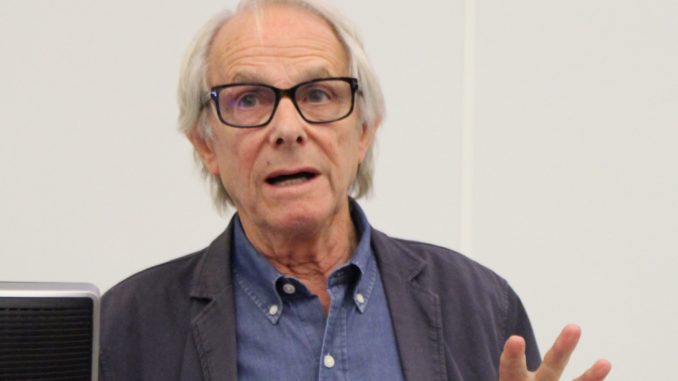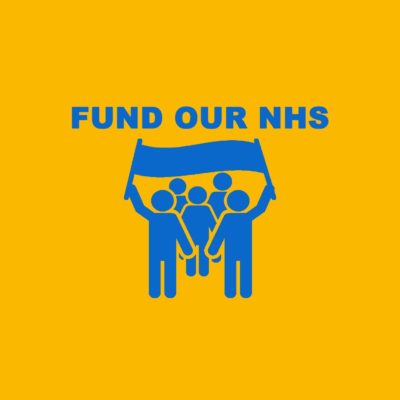
Guest post by Lucette Davies. This article is republished from East Sussex Save the NHS Campaign's website.
The Mental Health Crisis Summit held at The Royal Free Hospital on Saturday 28 September was an event that I feel privileged to have been able to attend. Most of us know that mental health services have always been the Cinderella service in the NHS and some of us will know this by our own experiences of mental illness.
Although I have my own catalogue of horrendous personal experiences (and some excellent ones) in psychiatric hospitals I am aware that today we are witnessing a crisis in mental health unlike anything we have seen before. I felt at the end of my tether, losing patience with a Government that clearly doesn’t mind being responsible for so much suffering and I needed to believe change was possible. I headed up to London barely able to believe that it was possible to get more than a handful of people together with an aim of addressing mental illness in our communities. I came away, in a much better frame of mind.
The Mental Health Crisis Summit aimed to raise awareness of the extent of the mental health crisis and the reasons why it is happening. It aimed to bring together campaigners, staff, patients and relatives with the hope that this would be the start of building a campaign to tackle the root causes of the current crisis.
The conference was organised by Health Campaigns Together, Keep our NHS Public and Mental Health – Time for Action. I was sent an email by organisers about a week before the event to tell me that places were now all taken. They filled a lecture theatre with around 250 people, but it felt like there was the enthusiasm for change that you would expect from 500 there. In these dark times where suffering is becoming the norm for so many people such displays of commitment, to fight for change and show solidarity with others, feel like a breath of fresh air in an otherwise suffocating environment.
So what was this day all about? The main theme of the day seemed to be a recognition of the social model for mental health. After 10 years of austerity, with people on poverty wages, in insecure work and living in insecure housing it is hardly surprising that so many people are becoming mentally unwell.
In a sick society you can’t have decent health and well-being for all
The great Ken Loach, gave a speech about how insecure work can damage a person’s mental health. He described how when we privatise public services we introduce competition. Private corporations compete by lowering prices and they lower prices by lowering wages. As we privatise our public services we are in fact fuelling the mental health crisis. He made it clear that he believed we need a Labour Government in order to end the crisis.
The demand for precarious work is central to the economic system we live in
The event was widely supported by the unions as well as campaigners but the fact that there were so many people attending who had been bereaved because somebody they know had taken their own life was evidence of just how deep this crisis runs.
We also heard Kevin Courtney from the National Education Union talk about how schools are failing our kids. Rachel Bannister, from Mental Health Time for Action, is a mother who described how mental health services have so horrendously failed her anorexic daughter and therefore her whole family.
The hostile environment for immigrants to the UK is something else that has fuelled racism and discrimination in the UK pushing some into mental illness. The denial of care to some has led to a deterioration in their mental health and for others who are attempting to pay medical costs the pressure of debt can be equally damaging.
There has been an 18% increase in food bank use over the last year alone
The welfare policies since 2010 have placed blame on claimants and forced people who are too sick to work into an endless cycle of jumping through hoops where they have to prove their entitlement time and time again to get the money they need to live.
While waiting for a decision on disability benefits 17,000 people have died
The Social Model is about campaigning for decent jobs, housing, incomes and education to start improving the mental health of our population. It is about ending the hostile environment, about respecting the individual, nurturing our children and giving people better working conditions. These changes would lead to a reduction in mental illness within our population.
The people who have suffered the deepest cuts have the greatest need – we need to focus on the depth of need
But then we need to look at the psychiatric services. They need to be publicly funded and publicly run as people matter far more than profit. We need more mental health nurses and more doctors as well as all the other professions that work in psychiatry. We need to have an adequate number of inpatient beds as well as community services.
Nobody, least of all kids should be placed in mental health units hundreds of miles from their friends and families.
We do need a Labour Government for this to happen and it was fantastic to have the Shadow Secretary of State for Health, Jonathan Ashworth speak at the end of the day.
The plan will be to draw up a charter of demands of changes we believe will be necessary to bring the current crisis under control. It will also be to keep people who attended in contact with each other and provide a network of different campaign groups to move forward in a cohesive manner. It almost certainly won’t be the last such conference and the idea that it should be an annual event was raised by Dr Louise Irvine in her summing up speech.
But for me, it has restored my faith in humanity again. I felt relieved that at last people were prepared to discuss a subject that has so often felt like one we all wanted to brush under the carpet. I was filled with admiration for the courage of many people who stood up and talked about their own personal experiences. There is a long way to go but every journey however long starts with opening the door. And it felt like this conference definitely opened a door that has been closed for far too long.







It is good to know that such events and push back are happening – after having worked in mental (ill) health services for a long time and of course suffering myself over the years I wonder if referring to human distress as ‘mental illness’ is useful.
These terms separate body from mind and the human being from the broader cultural powers that shape us all and make suffering an internal issue that requires personal ‘treatment’ This blinds us all to the cultural disorders and whole being approach we need if we are ever to create cultures that are life affirming.
In fact more and more people are being educated to self identify with the mental illness narrative and the economic system also ties people to this self identification via the increasingly abusive anti welfare system.
In IAPT and secondary care the dominance of the ‘medical model’ is everywhere and it is growing- The IAPT model is largely ‘diagnosis’ and ‘treatment’. Diagnostic categories are matters of opinion about a collection of subjective symptoms with much cross over with all the other so called disorders so are almost meaningless.
Not just meaningless but harmful because of stigma and the collapsing of complexity into a mere ‘trigger’ for your own hypothesised personal disorder./illness. This also comes with additional disabling narratives as people begin to ‘act as if’ they have this or that disorder and quite often families orient to this label and now whatever conduct is visible is also fed through the same story.
Stories and words really do matter – its part of how we make sense of being alive.
Consider the power of drug company marketing for ‘treatment’ or ‘medication’ words like ‘anti depressant’ or ‘anti psychotic’
I really think we should stop using these terms.
these are marketing terms and not at all a reflection of what these drugs are – they are psychiatric drugs and have a range of drug effects. These effects are wide ranging such as, sedation, agitation, numbing, libido changing, suppressing, personality changing, appetite changing, sleep changing and for some have significant withdrawal effects.
Most of our psychological ‘treatments’ also locate suffering within the person and ‘treatment’ is about symptom management and adjusting the person to the toxic culture so this again reduces the world to a mere trigger and helps maintain the status quo.